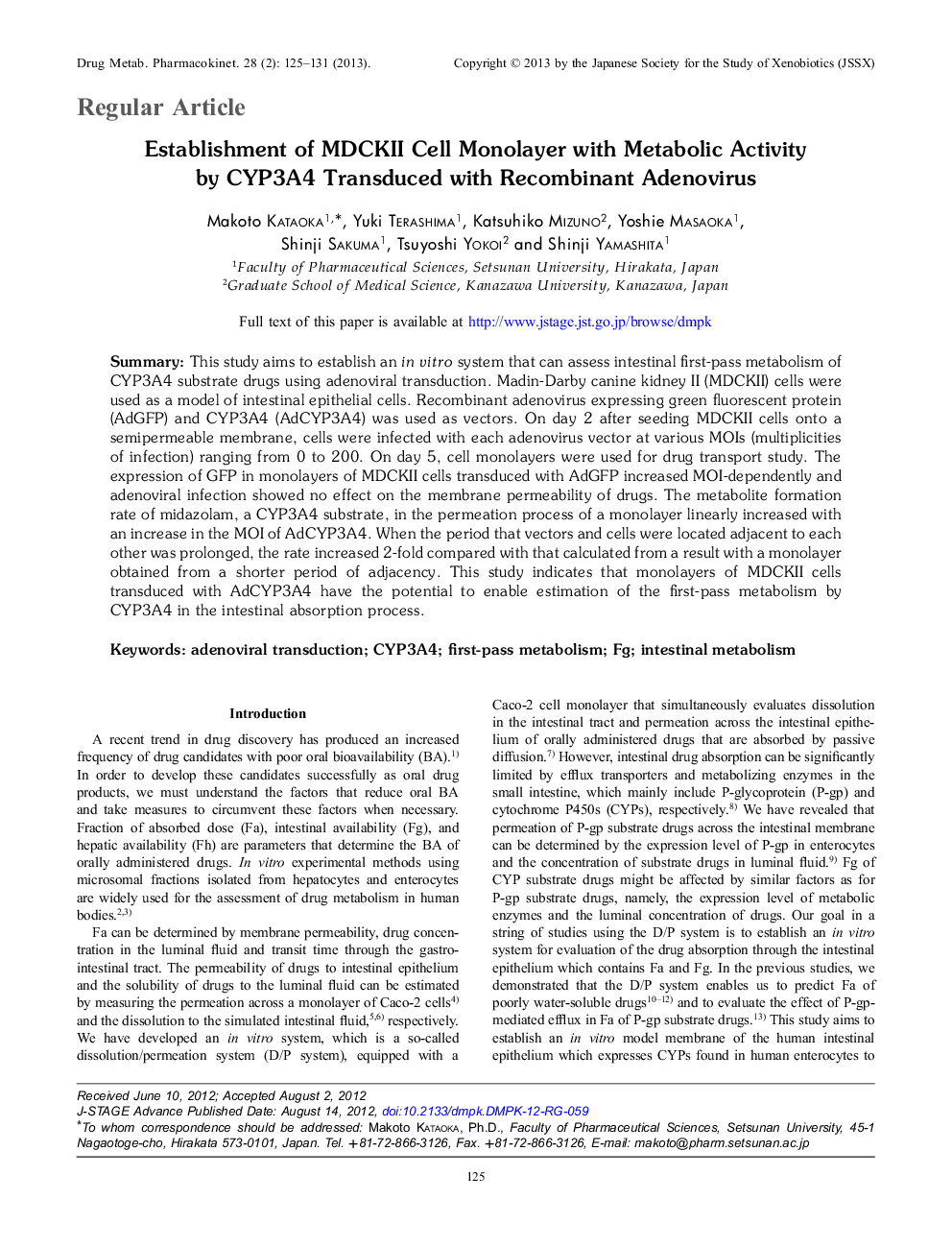| کد مقاله | کد نشریه | سال انتشار | مقاله انگلیسی | نسخه تمام متن |
|---|---|---|---|---|
| 2478981 | 1113415 | 2013 | 7 صفحه PDF | دانلود رایگان |

Summary:This study aims to establish an in vitro system that can assess intestinal first-pass metabolism of CYP3A4 substrate drugs using adenoviral transduction. Madin-Darby canine kidney II (MDCKII) cells were used as a model of intestinal epithelial cells. Recombinant adenovirus expressing green fluorescent protein (AdGFP) and CYP3A4 (AdCYP3A4) was used as vectors. On day 2 after seeding MDCKII cells onto a semipermeable membrane, cells were infected with each adenovirus vector at various MOIs (multiplicities of infection) ranging from 0 to 200. On day 5, cell monolayers were used for drug transport study. The expression of GFP in monolayers of MDCKII cells transduced with AdGFP increased MOI-dependently and adenoviral infection showed no effect on the membrane permeability of drugs. The metabolite formation rate of midazolam, a CYP3A4 substrate, in the permeation process of a monolayer linearly increased with an increase in the MOI of AdCYP3A4. When the period that vectors and cells were located adjacent to each other was prolonged, the rate increased 2-fold compared with that calculated from a result with a monolayer obtained from a shorter period of adjacency. This study indicates that monolayers of MDCKII cells transduced with AdCYP3A4 have the potential to enable estimation of the first-pass metabolism by CYP3A4 in the intestinal absorption process.
Journal: Drug Metabolism and Pharmacokinetics - Volume 28, Issue 2, 2013, Pages 125-131